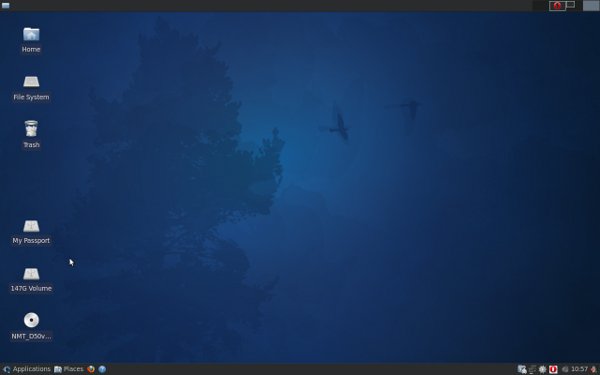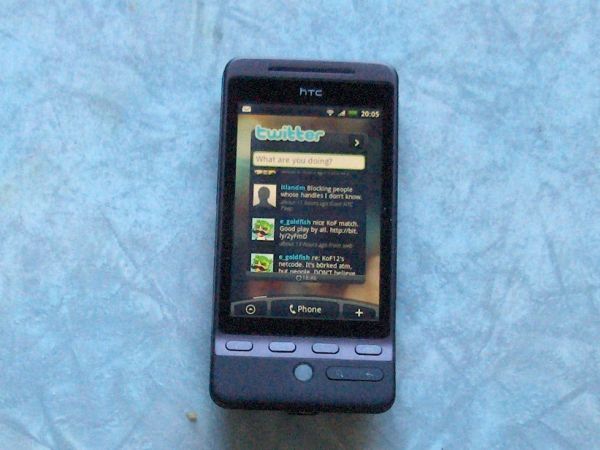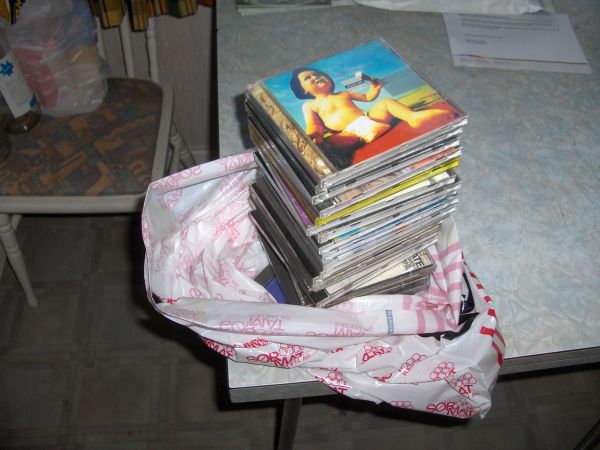
You probably wonder if I have forgotten all about the brainwave entrainment projects I wrote about this spring? After all, I am a self-confessed fadboy, only my fads are out of sync with the rest of society, as am I generally. Or perhaps YOU have forgotten about them, although Holosync in particular has shot past anime in my site’s referrals. Anyway, no, I have not forgotten.
I still use the Holosync Dive track pretty much every workday morning, although I have skipped it a few times. It is a nice enough way to wake up – not beautiful, but a reasonable compromise between sleep and wakefulness. Holosync does not require actual meditation, and frankly I don’t find it conductive to traditional meditation either. The crystal (?) bowls, while somewhat more melodic than actual pots and pans such as your toddler may bang on, are still more in that direction than actual musical instruments in the European sense.
Still, it is half an hour to sit down and shut up, always a good thing in a hectic world. You might think I do nothing else, being unimaginably single for life and having the whole house to myself. But with The Sims 3 out now, it is so very easy to jump into a simpler pocket universe where there is always something going on. Stealing half an hour from sleep (thanks to the 10 minutes of delta at the end, which is as much as you get from 90 minutes of sleep in the morning) is a pretty good deal.
While I don’t find Holosync particularly pleasant, LifeFlow 8 has a certain appeal. It is the third and lowest of the alpha levels, the next being the 7 Hz theta level. Actually LF7 is a bit higher, to resonate with the Schumann Resonance, the natural base resonance of Earth’s ionosphere. I am not sure how useful that is, but some like to have that option. But enough about that. I have only heard a shorter sample of it and it did not resonate with me, at least yet.
LifeFlow 8, on the other hand, did. Even though the musical instruments on it are not particularly pleasant (some kind of trombone perhaps, or some weird form of bagpipe?), I immediately felt at home with it. I had not felt that way with the first two levels. I found them honestly to be a distraction rather than a help for meditation. I felt that I would normally meditate deeper than that when I meditated naturally and spontaneously. But with LF 8, it seemed strangely familiar. It did indeed feel like it resonated with me. Putting on the headphones, I would move into non-thinking mode in a matter of heartbeats, much as when meditating spontaneously.
For the non-meditating reader, thinking may sound like a good thing and non-thinking may sound like something your spouse does too much of. That is not quite what I mean. I believe that humans normally daydream when they don’t think. That is, while they are staring blankly, they are actually reliving memories or seeing images of things they want (or fear, for those of a less lucky mental constitution). I don’t do that, but that’s another chapter. What I talk about here is a state of brain where I don’t talk to myself, don’t visit imaginary worlds, but just am. I exist, I observe my own mind casually, but I don’t interact with it. Thoughts still come up, but I don’t think them. I don’t agree or disagree with them, I don’t extend them or compare them, and I don’t subvocalize them.
Usually when verbally oriented people think (and I believe that is most of us), we subvocalize like crazy. That is to say, we partially form the words we think, with our vocal tract, even if we don’t say them or even whisper them, even with our mouth closed, there are still small movements of the muscles we use when we talk. Sensors made with modern sensitive electronics can pick up these movements and actually play your thoughts out loud, although this can still only be done in a laboratory setting and with equipment placed directly on your body. So the CIA cannot actually monitor your thoughts from a distance, and never will with this technology. It just serves as proof that people are indeed directing their thought with the muscles of their vocal tracts. Once you are aware of this, you can start looking for it in yourself, and learn to shut down the whisper of the muscles. Or it could happen spontaneously, when you enter a state of mind where you have nothing you want to say.
For me, this happened first when I prayed to God. At first, I had prayed the American way, rattling off a wish list to God and hanging up. But I considered that this was pretty rude if God was real, and you would not do it in the first place if not. So after talking to God, I started to wait in case he had something to say to me. Some people report that God does actually speak to them. Perhaps they have a different mental constitution than I. God did not speak to me the way people do. But while waiting for him, I had nothing more to say, not even in my thoughts, since God supposedly reads those too. And so, perhaps for the first time in my life, I fell silent inside.
What happened after that, regarding my prayers, is of no concern to this article. But once I knew that it was possible to be silent inside, I could also practice this even when not in prayer. I don’t do that much, because life is full of fun things to do, one after another, and you could live for a million years and not stop having fun. But sometimes I really want that quiet, even though I am not sleepy. Because it is… not fun, exactly, but good. When you don’t have much food, food is good, and when you don’t have much quiet, quiet is good. I guess it is part of the recipe for being human.
It is this silence inside, ironically, that the soundscape of LifeFLow 8 reminds me of. The actual sound is outside the skull and after a few seconds I barely notice it. The quiet is inside, where I retreat to.
For those who have not meditated even casually for a long time, it may be another frequency (probably a higher one) that resonates best with you. Or you may have to get used to the process from scratch first. In the past I would have tried to tell you how, but there is an excellent introduction on Project Meditation, for free. You can even download free spoken instructions and timers of various lengths. I personally did not use a mantra when I first started scientific meditation, I simply counted very slowly to four. Some count to ten. Some just observe their breath. But mantra is probably the most common. Anyway, you probably know all this if you read this entry, unless you are a concerned relative or friend.
So to reiterate: Holosync is an alternative to meditation, while LifeFlow is a way to trigger and maintain meditation. I recommend Holosync when one is sleepy and LifeFlow when not, personally. I am not going to buy the second and later levels of Holosync though. I can afford the rather steep price, but I don’t for a moment believe in the “carrier frequency” theory, and I certainly don’t want affirmations in my meditation. They are an abomination, as far as I am concerned. Perhaps I will write about why, one day, or perhaps not. This is plenty for today.









